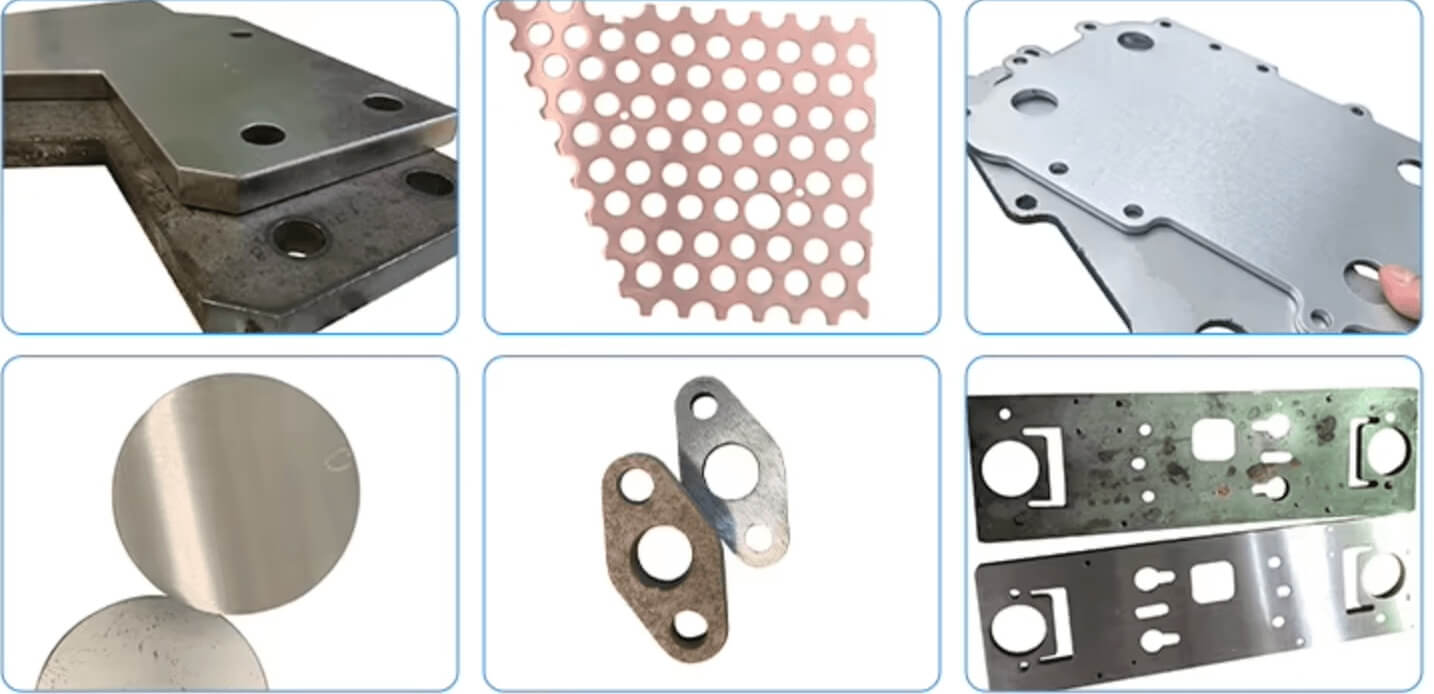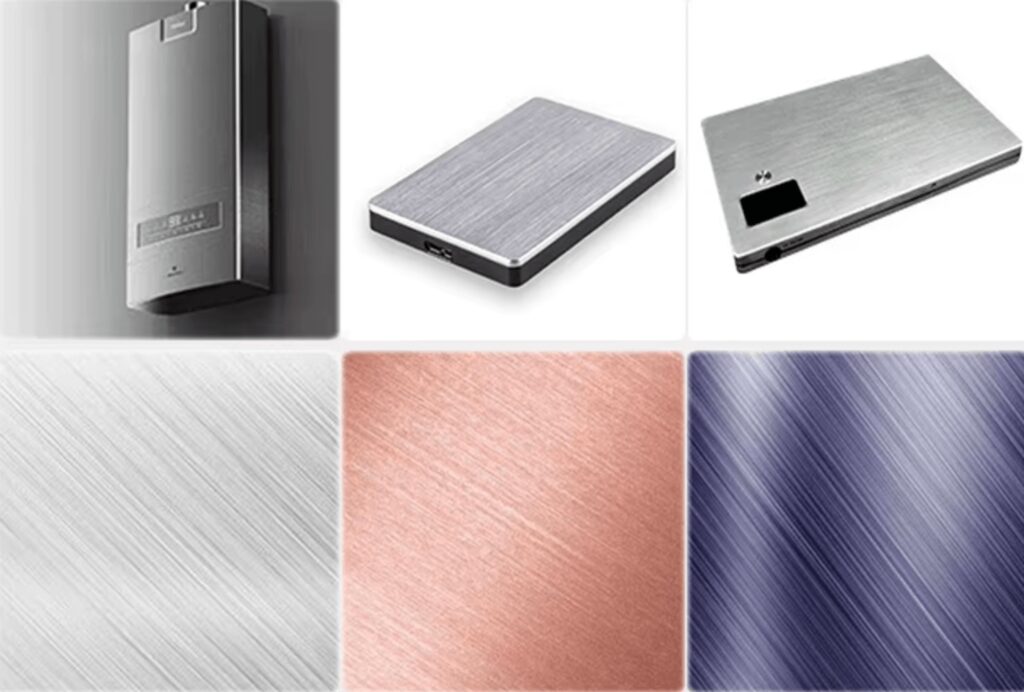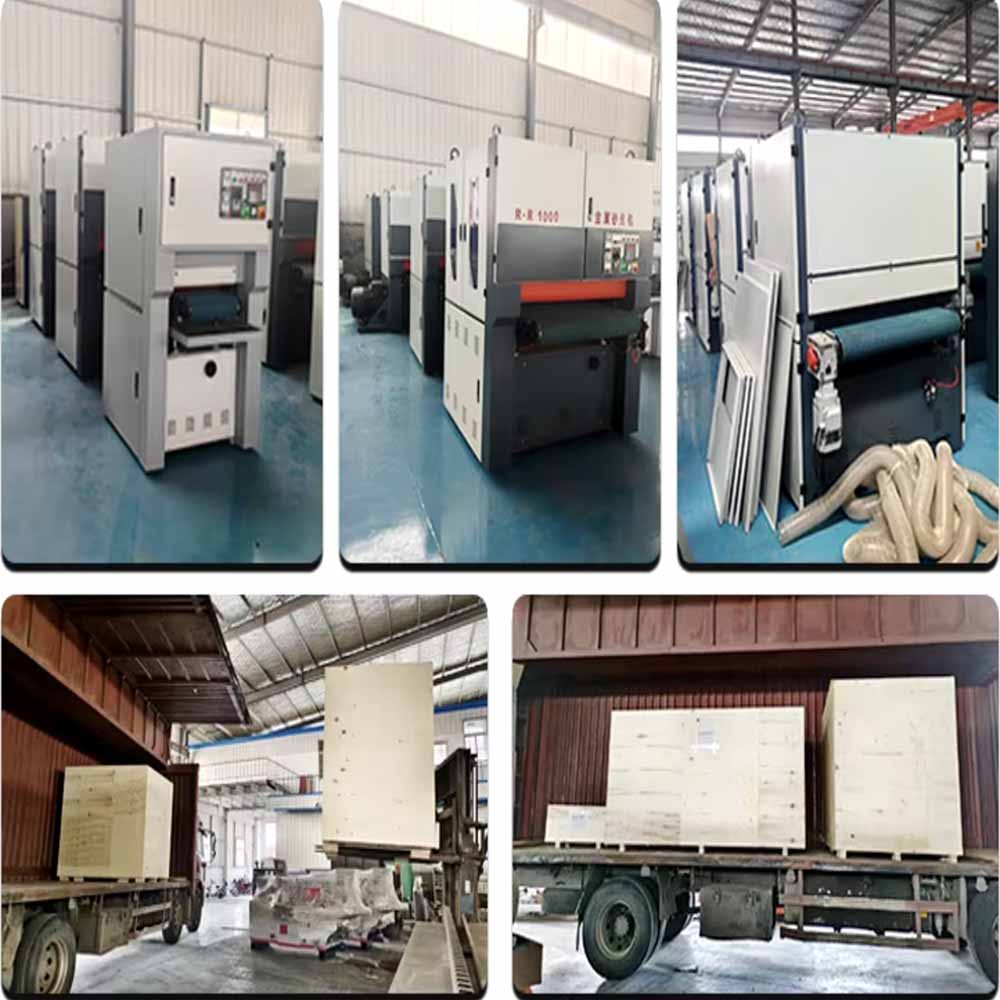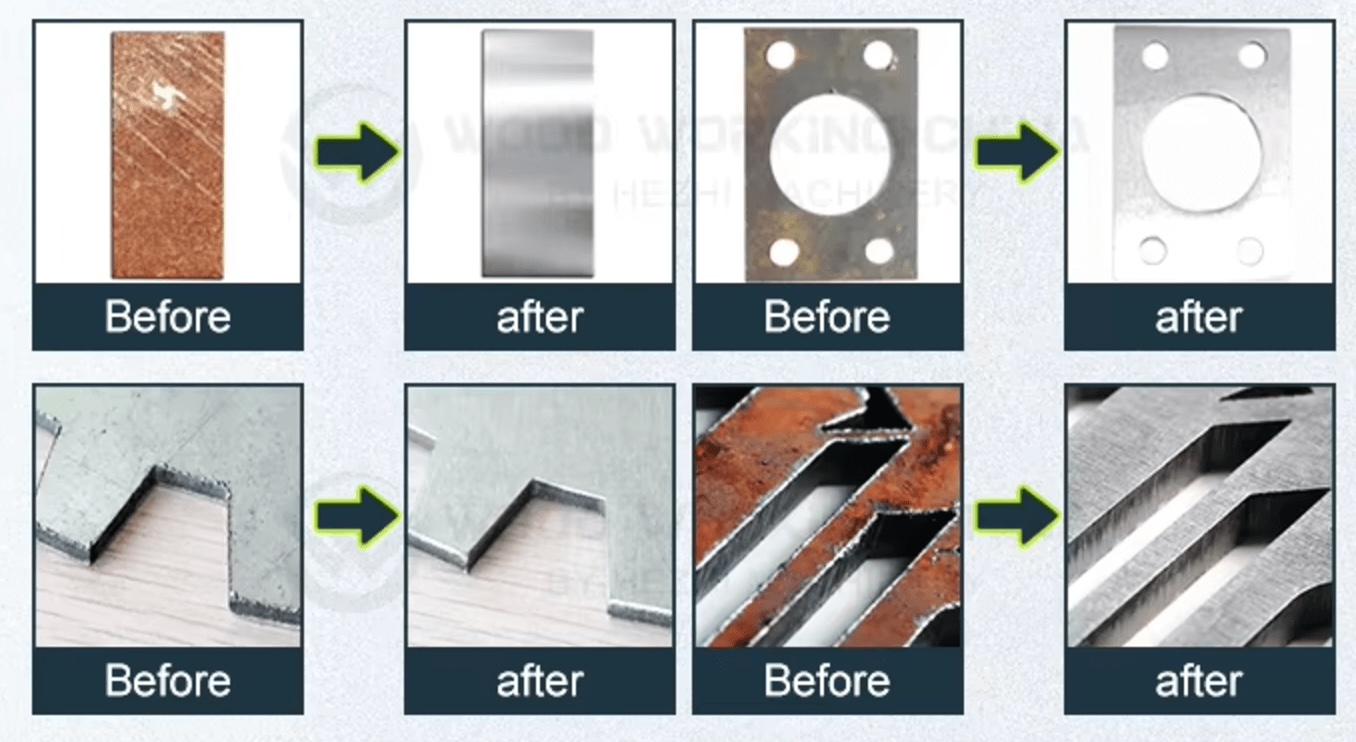
Metal Sanding Machines: Construction, Specs, and Applications
Whether for removing burrs, oxidation, or weld seams, these machines ensure metal components meet the required standards of precision and finish. In this article, we will explore the fundamental construction, technical specifications, and diverse applications of metal sanding machines, highlighting how they contribute to industries like automotive manufacturing, steel processing, and aerospace.
Table of Contents
Basic Construction of Metal Sanding Machines:
The metal sanding machine consists of several key components that work together to deliver high-quality surface finishing. These components include:
Mainframe (Chassis): The core structure of the machine, the mainframe provides stability during operation. It supports other parts like the motor, sanding system, and control panel, ensuring reliable performance.
Sanding Belt Transmission System: This system drives the sanding belts, which rotate at high speeds to perform the abrasive action. The system is designed to ensure smooth operation and precise control over the sanding process.
Motor (Drive Unit): The motor is a crucial component, typically ranging from 1.5 kW to 2.2 kW, depending on the machine’s size and intended application. It powers the sanding belt and is designed to provide consistent torque and speed.
Control Panel: Modern metal sanding machines feature an intuitive control panel, where operators can adjust key parameters like sanding belt speed, pressure, and machine operation mode. Advanced systems may include digital displays, touchscreens, and automated settings for ease of use.
Key Functions of Metal Sanding Machines:
The primary function of a metal sanding machine is to refine and smooth metal surfaces. Here are the essential tasks it performs:
Deburring: The machine removes sharp edges, rough surfaces, and burrs left on metal parts after processes like cutting, milling, or drilling. This improves safety and product quality.
Oxidation and Rust Removal: Sanding machines efficiently eliminate oxidation layers and surface rust, especially on metals like steel, aluminum, and stainless steel. This enhances the aesthetic appearance and prepares surfaces for further treatment, such as coating or painting.
Weld Seam Finishing: For welded components, metal sanding machines ensure that weld seams are smoothed and blended into the surrounding surface, providing a uniform finish.
Surface Polishing: The machine’s abrasive action can also be used for polishing metal surfaces to achieve a smooth and glossy finish, which is essential for products requiring high aesthetic standards.
Technical Specifications of Metal Sanding Machines:
Understanding the technical specifications of a metal sanding machine is vital for selecting the right model for your needs. Common specifications include:
Sanding Belt Dimensions: Sanding belts come in various widths and lengths, with common sizes being 1000mm, 1500mm, and 2000mm. The width of the belt impacts the size of the workpiece that can be processed.
Motor Power: Depending on the workload and intensity of the sanding task, the motor power typically ranges from 1.5 kW for smaller machines to 2.2 kW or higher for industrial-grade models. A more powerful motor allows for faster and more efficient sanding of tougher materials.
Sanding Speed: The sanding belt speed is adjustable, allowing operators to fine-tune the machine for different metal types and surface finishes. Speeds typically range from 10 to 20 meters per second, with higher speeds used for finer finishes.
Work Width: The work width, or the maximum width of metal that can be processed, is an important specification. Industrial sanding machines often have work widths of 300mm to 1500mm, depending on the machine’s design and intended use.
Dust Extraction System: Many modern sanding machines are equipped with integrated dust collection systems to capture particles produced during sanding, ensuring a cleaner work environment and improved air quality.
Applications of Metal Sanding Machines:
Metal sanding machines are versatile tools, widely used across various industries. Key applications include:
Automotive Manufacturing: In the automotive industry, metal sanding machines are used for deburring and surface finishing of components like body parts, frames, and engine parts. This ensures the parts are free of defects and meet safety and aesthetic standards.
Steel Processing: Sanding machines are essential in steel processing plants for removing scale, rust, and oxidation from steel coils, plates, and pipes. This prepares the material for further processing or coating.
Aerospace Industry: Precision sanding is critical in aerospace manufacturing to ensure metal parts meet strict performance and surface finish standards. Components like turbine blades, aircraft fuselages, and structural elements require consistent deburring and polishing.
General Metalworking: Whether for large industrial applications or small-scale workshops, metal sanding machines are widely used for polishing and surface preparation in a variety of other metalworking tasks.
Conclusion
Metal sanding machines are indispensable in the metalworking industry, providing essential functions such as deburring, rust removal, and surface polishing. By understanding their basic construction, technical specifications, and diverse applications, manufacturers can choose the right machine to meet their specific needs, ensuring optimal efficiency and high-quality results. Whether you’re in automotive manufacturing, steel processing, or aerospace, a metal sanding machine can significantly enhance your production process and product quality.
Products Categories
Recently News
Why Choose Us
- 16 years of expertise in CNC equipment production.
- Over 22 years of experience from our skilled technical team.
- Trusted in 100+ countries with 800+ installations globally.
- 10,000 square meter manufacturing facility, equipped for large-scale production.
- A dedicated team of 20+ international sales representatives.
- Round-the-clock support with 24/7 after-sales service.
- A rigorous quality assurance system to ensure top-notch products.
- A collaborative approach fostering success for partners, clients, and staff.
- Comprehensive turnkey solutions integrating manufacturing, service, and sales.
- Designed to handle all types of metal workpieces, meeting diverse industry needs.
Contact Us
- Tel:86-531-88804531
- Phone:86 15562582965
- Email: [email protected]
- Address: Wangtai Gongye Industry, Qingdao



